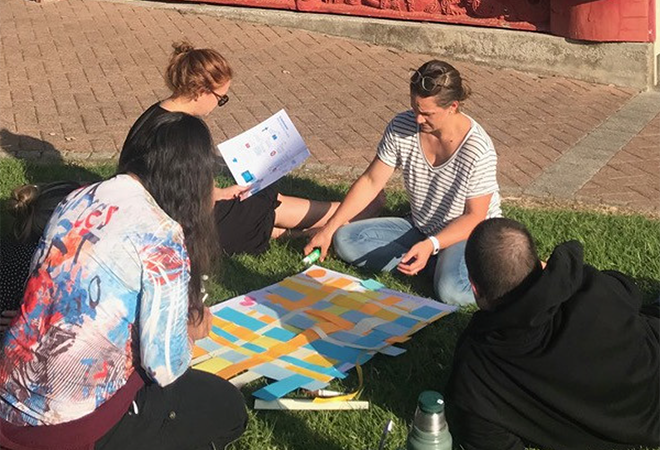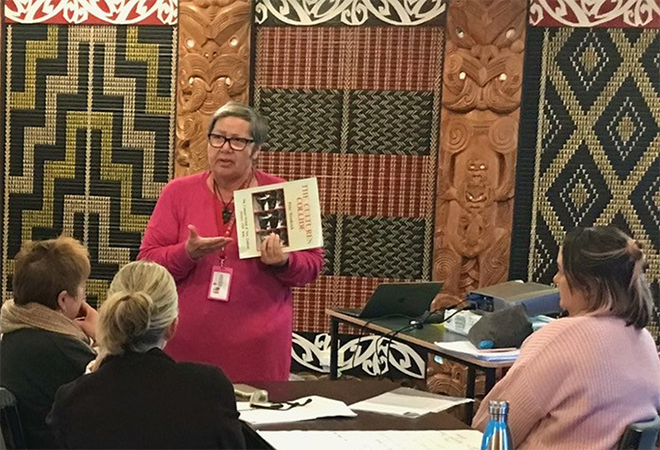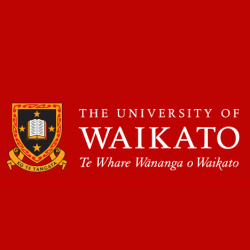

Activating Aotearoa histories: Giving effect to Te Tiriti o Waitangi in education through the Education and Training Act (2020)
Status
Completed: 30 June 2025
Key research question
How did participation in the Poutama Pounamu Blended Learning (PPBL) influence the underlying cultural beliefs and attitudes of participating kaiwhakaako and akonga from Te Kura Toi Tangata, the Faculty of Education at the University of Waikato? Has it influenced or altered their preparation of student teachers?
Aims:
This research aimed to investigate how participation in the Poutama Pounamu Blended Learning (PPBL) Programme – a professional learning and development initiative with educators from Te Kura Toi Tangata, the Faculty of Education at the University of Waikato – has influenced the underlying cultural beliefs and attitudes of participating educators.
Through their 12-month engagement with PPBL, staff undertook a course of slow-burn and carefully layered learning where they examined our nation’s history, the impacts of colonisation on our society and our institutions and the outworkings of the unconscious beliefs perpetuated through a colonial view of the world on their own practice. They also reviewed transformative leadership and dialogic pedagogical praxis.
Methodology
The research analysed the learning journeys of seven participants in the course. Alongside the insights of these participants, the experiences and reflections of groups of their peers and students in an Initial Teacher Education course are also presented.
Evidence was gathered through the in-depth analysis of the electronic learning journals (ELJ) with seven kaiwhakaako. Findings from this analysis were then used to explore the experiences of this group through interviews as conversations.
The final data source was a focus group interview as conversation, held with Initial Teacher Education students in classes being taught by a kaiwhakaako undertaking the PPBL.
About the PPBL Programme
The Poutama Pounamu Blended Learning (PPBL) Programme is a year-long professional learning and development opportunity designed to surface and challenge long-held beliefs of educators, rooted in the rhetoric of colonisation. A blend of face-to-face wānanga, supported by online study, and focus group conversations provide the backbone of the programme. The learning is undertaken by participants (kaiwhakaako) and a group of their peers (ākonga).
The PPBL content is framed around opportunities for participants to engage in and learn through the following three processes: to know self, to grow self and to grow community.
Know self
To truly ‘know self’ required the sharing of knowledge in safe spaces where critical reflections on one’s own experiences, together with curiosity and increased self-awareness, can contribute to self-directed learning that can result in an increased sense of self.
Grow self
Once the know-self conversation had begun and safe spaces were available to have these conversations with other similarly curious and increasingly self-aware individuals, the learning was able to continue. Often the most challenging conversations were able to be had with colleagues and friends, about subject matters that previously had never been considered.
Grow community
To grow community means being proactive with this learning and taking it to the wider level of reform, whether it was growing one’s classroom praxis or one’s professional community. This requires understanding the cultural contexts in which we work and understanding our own agency and power, and the power and influence of our society and professional institutions.
Three videos located in the project 'Outputs' highlight the importance of these processes.
Team

Dr Mere Berryman
Project Leader
The University of WaikatoDr Elizabeth Eley
Jay Haydon-Howard
Frances Kelly
Research Assistant
David Copeland
Status
Funding
$96,175.00 (excl GST)
Key Findings
All participating kaiwhakaako concluded that they had been greatly influenced by their participation in the PPBL.
Four main themes thematically emerged in relation to how their underlying cultural beliefs and attitudes had changed.
Theme 1: Changing power relations through the professional and ethical parameters of teaching and learning
The overwhelming response to participating in or receiving from the PPBL was a shift in power relations. Kaiwhakaako reported that they were challenged to move from being, as one participant described, a place of “chalk and talk” into a position of being a learner alongside their colleagues and students.
Theme 2: Continuing to deepen understandings of equity through cultural and relational pedagogy that is responsive and builds from what learners already know
Participants all expressed how, through PPBL, their underlying philosophical beliefs about pedagogy and practice had expanded and were continuing to change. They could no longer view students as passive recipients of knowledge as they needed to make cultural connections with them to ensure their pedagogy was responsive to their learners’ own prior knowledge and experiences.
Theme 3: Understanding the history of our nation’s past and the implications for our future
The need for all those involved in tertiary educational provision to understand and acknowledge the shared history of our nation and the silenced pervasiveness of colonisation.
Theme 4: Being the best that we can be.
Knowing our history was an essential part of being the best we can be, as educators preparing this generation of learners to be respectful of each other’s culture, and as tomorrow’s leaders of this nation under Te Tiriti o Waitangi. This could mean that we need to understand Te Tiriti and model the relationships envisioned through the principles of this document. Te Tiriti provided the basis for the transformation needed to ensure our tertiary institutions did not perpetuate the harm and inequities that understanding our history has revealed. Instead, through Te Tiriti, we can build our reform on mutual understanding, responsibilities and benefits, with all parties, Māori and non-Māori; lecturer and student; leadership and staff.
Conclusions
The four emergent themes:
- Changing power relations through the professional and ethical parameters of teaching and learning
- Continuing to deepen understandings of equity through cultural and relational pedagogy that is responsive and builds from what learners already know
- Understanding the history of our nation’s past and the implications for our future
- Being the best that we can be
...work interdependently and become most influential when they are collectively applied with others in a mutually evolving cycle to bring about change.
This research shows that the PPBL provides a clear learning pathway and curated resources for very determined acts of learning, where equity and social justice is possible.
The evidence, throughout this research, suggests that being the best educator we can be, is about our professional responsibility to increase equity by changing power relations. We can do this by utilising our professional, adaptive expertise to ensure our pedagogical responses are culturally and relationally grounded in what learners bring to this context, no matter their age or ethnicity.
The evidence also suggests that this professional responsibility brings with it a moral imperative to understand the history of unequal power-relations that our nation was and continues to be built on, and to disrupt these contexts in ways that are respectful but ‘aggressively helpful’.
If we are to take a more meaningful role as educators in Aotearoa there is work for us all, and while individually our contribution may be insignificant, collectively we can be influential.
This report shares the insights and findings from a research project that sought to understand what educators from Te Kura Toi Tangata, the Faculty of Education at the University of Waikato had taken from the Poutama Pounamu Blended Learning (PPBL) Professional Development Programme. Four main themes thematically emerged in relation to how this learning had influenced and changed their own praxis, underlying cultural beliefs and attitudes.
- 30 June 2025
Video
Video 1 | Know Self
The PPBL content is framed around opportunities for participants to engage in and learn through the following three processes: to know self, to grow self and to grow community.
- 30 June 2025
Video
Video 2 | Grow Self
The PPBL content is framed around opportunities for participants to engage in and learn through the following three processes: to know self, to grow self and to grow community.
- 30 June 2025
Video
Video 3 | Grow Community
The PPBL content is framed around opportunities for participants to engage in and learn through the following three processes: to know self, to grow self and to grow community.
- 30 June 2025